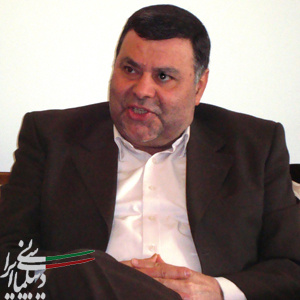Musavi Will Follow Khatami’s Policies

Interview with Mohammad Sadr, former deputy foreign minister on Arab-African affairs.
Mir Hosein Musavi has entered the presidential elections, but we still don’t know about his foreign policies except for some sketches on nuclear issues and relations with West. What are his plans?
Musavi’s foreign policy team is the one which worked with Khatami. So it is wouldn’t be strange if Musavi followed Khatami’s foreign policy and regained his achievements, that is, warm relations with most global powers, African, South American, Caucasian and Central Asian countries, close ties with United Nations, which of course had a downfall during Ahmadinejad’s presidency.
As far as we know Musavi, he has a clear understanding of foreign diplomacy. He doesn’t look at foreign diplomacy from a security prism, and we hope that with his presidency, our international status regains its position.
Is that a message to West and Arab countries?
As I said, all Khatami’s team is behind Musavi’s foreign policies.
When Khatami was about to start his term in 1997, things were better. There were no UN sanctions. But Musavi faces a tougher situation. Can he follow Khatami’ model?
Look, although Hashemi is different from Ahmadinejad, but his foreign diplomacy was not successful. At the final year of his presidency European ambassadors had left Tehran, relations with the United States was at its nadir, our situation in Persian Gulf was precarious and… I want to tell you what Khatami received was not a flourishing foreign diplomacy. However, Khatami was successful in turning the tide. Musavi also has the potential to reorder things, so there is no need to worry.
Some of Ahmadinejad’s policies have sacrosanct, like his nuclear stance. Musavi has said that he will follow some of his policies. But the truth is that we are facing tough challenges due to some of Ahmadinejad’s policies. How is Musavi going to deal with these?
I think neither the Iranian society nor the media have a correct understanding of the nuclear issue. Ahmadinejad only focuses on propaganda and that has led the nuclear issue out of track. It was in Khatami’s era that we installed the nuclear infrastructure and initiated uranium enrichment. But the circumstances such as US radical government and its occupation of Iraq and Afghanistan, misleading information provided by MKO and Libya compelled us to keep a low-profile on our nuclear activities. Halting uranium enrichment was a gesture of goodwill, but Europeans did not respond as they should.
We weathered the threat and just as we found Europeans won’t fulfill their pledges we restarted enrichment again at Khatami’s days. But Ahmadinejad’s fanfare and his anti-Holocaust remarks under the pretext of pro-active diplomacy brought us problems, including the sanction resolutions.
Unlike Ahmadinejad, Musavi will follow a rational, predictable policy and again unlike the president, he won’t sacrifice our foreign diplomacy for domestic issues and propaganda.
Is there a possibility that with Musavi’s presidency West and Arab countries take the first step towards normalization? What about United States? Our relations with US are not merely at the hands of the president.
Musavi’s presidency per se will create a positive atmosphere both domestically and internationally, just like Khatami’s election in 1997. Khatami’s wave started even before he entered the presidential palace. I support my argument with two reasons: first, a positive atmosphere will be created with an end to Ahmadinejad’s presidency and the controversial foreign diplomacy he advocated, and when a rational, cultural figure like Musavi has become the president. Second, there are the measures Musavi will take to rebuild relations with other countries, especially European countries.
Iran is a country with a remarkable position. Iran is influential country geopolitically and plays a role in all regional issues. Europe wants to receive assistance from Iran to solve regional crisis. This will improve ties. But about America, we have faced two Americas. One was the one aiding Iran in its invasion of our country, the one which wanted to topple the Islamic Republic. The other is the one who is sending friendship signals. We have had fluctuating relations in the past thirty years. Up to the end of the war United States was clearly seeking Islamic Republic’s overthrow. After that, especially during Clinton’s presidency they sent signals which we didn’t respond to properly.
George Bush returned everything to the first point. His Christian-Zionistic beliefs resulted in confrontation with Iran. One of our criticisms against Ahmadinejad is that he wanted to mend relations with a president with such convictions. However, Obama’s government is different and we can’t deny that. I believe that he is honestly seeking better relations with all other countries.
As to Middle East, I know Obama wants to bring change but I’m not sure if he is capable enough. The problem is a political entity called Israel whose security is United States’ chief diplomatic concern. Israel’s security and Iran’s role are not separable, so we have to see how Obama can establish balance between these two. As Musavi has said, he will welcome any goodwill gesture and he will personally meet Obama. Foreign diplomacy is about mutual moves and goodwill brings goodwill.

